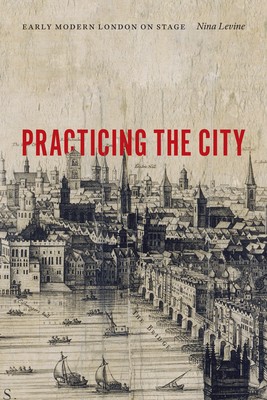
- We will send in 10–14 business days.
- Author: Nina Levine
- Publisher: Fordham University Press
- ISBN-10: 0823267865
- ISBN-13: 9780823267866
- Format: 15.5 x 23.1 x 1.8 cm, hardcover
- Language: English
- SAVE -10% with code: EXTRA
Reviews
Description
In late-sixteenth-century London, the commercial theaters undertook a novel experiment, fueling a fashion for plays that trafficked in the contemporary urban scene. But beyond the stage's representing the everyday activities of the expanding metropolis, its unprecedented urban turn introduced a new dimension into theatrical experience, opening up a reflexive space within which an increasingly diverse population might begin to "practice" the city. In this, the London stage began to operate as a medium as well as a model for urban understanding. Practicing the City traces a range of local engagements, onstage and off, in which the city's population came to practice new forms of urban sociability and belonging. With this practice, Levine suggests, city residents became more self-conscious about their place within the expanding metropolis and, in the process, began to experiment in new forms of collective association. Reading an array of materials, from Shakespeare and Middleton to
plague bills and French-language manuals, Levine explores urban practices that push against the exclusions of civic tradition and look instead to the more fluid relations playing out in the disruptive encounters of urban plurality.
EXTRA 10 % discount with code: EXTRA
The promotion ends in 17d.03:08:21
The discount code is valid when purchasing from 10 €. Discounts do not stack.
- Author: Nina Levine
- Publisher: Fordham University Press
- ISBN-10: 0823267865
- ISBN-13: 9780823267866
- Format: 15.5 x 23.1 x 1.8 cm, hardcover
- Language: English English
In late-sixteenth-century London, the commercial theaters undertook a novel experiment, fueling a fashion for plays that trafficked in the contemporary urban scene. But beyond the stage's representing the everyday activities of the expanding metropolis, its unprecedented urban turn introduced a new dimension into theatrical experience, opening up a reflexive space within which an increasingly diverse population might begin to "practice" the city. In this, the London stage began to operate as a medium as well as a model for urban understanding. Practicing the City traces a range of local engagements, onstage and off, in which the city's population came to practice new forms of urban sociability and belonging. With this practice, Levine suggests, city residents became more self-conscious about their place within the expanding metropolis and, in the process, began to experiment in new forms of collective association. Reading an array of materials, from Shakespeare and Middleton to
plague bills and French-language manuals, Levine explores urban practices that push against the exclusions of civic tradition and look instead to the more fluid relations playing out in the disruptive encounters of urban plurality.


Reviews